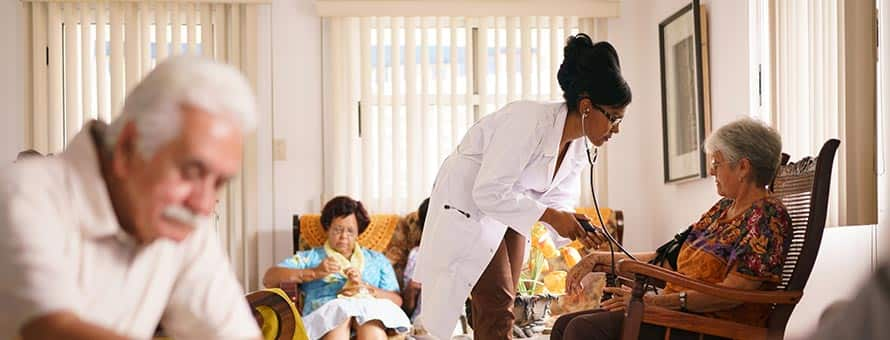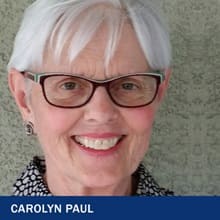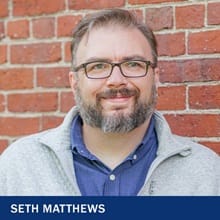What is Gerontology? The Study of Aging

Unlike geriatrics, which concentrates on the medical aspects of aging bodies and how they change and adjust to change in elder years, the field of gerontology has a multidisciplinary focus. Gerontology is the study of the physical aspects of aging, as well as the mental, social and societal implications of aging.
What Do Gerontologists Do?
![]()
Gerontology can be a rewarding field, allowing you to practice a range of skills to improve the health of older adults. As a gerontologist, you will apply a mix of biological and psychological practices to the study of aging. There are also opportunities to research and improve the policies and technology intended to protect and help older adults heal.
The skills you learn as a gerontologist are going to be needed even more in the future. Life expectancy has increased dramatically in recent decades, ensuring that the need for gerontologists will increase. As the population in the United States continues to age, earning a degree in human services with a concentration in gerontology could be a good investment in your future.
According to AARP, a record number of Americans are turning 65 in 2024. The organization reports this is part of a "gray wave" or "silver tsunami" in which an unprecedented portion of the population is aging.
At Southern New Hampshire University (SNHU), you can pursue a bachelor's degree in human services with a concentration in gerontology and study the most pressing issues facing our aging population using a proactive focus on wellness over disability and disease, emphasizing quality of life, and examining healthcare reform and other public policy issues.
Find Your Program
What are the Main Areas of Gerontology?
 Dr. Carolyn Paul, lead faculty for sociology programs at SNHU, holds a PhD in Sociology and studied families with aging relatives as a research assistant at a gerontology center. She said there are 3 major issues to consider when studying the multi-faceted aging process:
Dr. Carolyn Paul, lead faculty for sociology programs at SNHU, holds a PhD in Sociology and studied families with aging relatives as a research assistant at a gerontology center. She said there are 3 major issues to consider when studying the multi-faceted aging process:
- How things change with age
- The differences within generations
- How people, even within the same generation, experience things
"Age used to be the major point of definition,” she said, “but now there are generational and historical differences related to what has impacted people. My parents, for example, grew up in the Depression, so their thinking, behavior and expectations are shaped by that.”
What are the Different Types of Age in Gerontology?
![]()
According to the National Library of Medicine, gerontology sometimes further categorizes its subjects into three subgroups — youngest-old, middle-old and oldest-old:
- Youngest-old refers to people 64 to 74 years old
- Middle-old refers to those 75 to 84 years old
- Oldest-old refers to those 85 years and older
Dividing the population into these categories can help gerontologists and clinicians investigate various geriatric conditions and gain a more complete understanding of trends within different age groups, the journal reports.
Emerging Opportunities for Gerontology Specialists
Depending upon their career interests, Paul said, students who want to work with an older population may consider options beyond traditional positions in healthcare and roles in human services. Emerging fields such as segmented marketing and advertising specifically aimed at the aging populations may appeal to business students, for example.
At the same time, existing shortages in the healthcare sector and occupational therapy point to opportunities to work at rehabilitation centers or as a service provider focused on independent living.
“In my Los Angeles County community, where a lot of people are retiring, several attorneys have tailored their services to local demographics and specialize in elder law and setting up complex trusts, wills and estates,” Paul said.
![]()
The United States Census Bureau projects that between 2028 and 2030, a crossover will take place in which there will be more Americans over 65 years old than Americans who are 18 years old and younger.
The demand for professionals in such diverse fields as healthcare, urban planning and public policy legislation, adaptive living solutions, information technology and software development, fitness and wellness, non-profit community outreach and hospital-based organizations presents many career opportunities for the coming decades.
“People may retire at age 50, yet live until 100 years old, so we explore a broad range of topics in our courses on gerontology,” Paul said. “Technology is a powerful tool, not only to engage with local resources and caregivers but also to gather information in the media and throughout the Internet.”
She offered an example.
“My elderly next-door neighbors, who are pretty independent, use their computers to place orders at the local pharmacy, order groceries from Amazon and more,” Paul said.
The individual differences among older people, even those who are in the same age group, illustrate the vitality of the field of gerontology. Career opportunities will be driven by the needs, abilities and interests of our elders as well as those of their loved ones and caregivers.
Starting a Career in Gerontology
 Seth Matthews, an associate dean on SNHU's Academic Effectiveness team with over a decade of experience in higher education and counseling, said a degree in human services can help prepare you to work with a broad assortment of populations to connect them with health and other services they need. By concentrating in gerontology, you will specialize your knowledge of the unique needs of an elderly population but can still transfer your skills to other groups and other helping professions.
Seth Matthews, an associate dean on SNHU's Academic Effectiveness team with over a decade of experience in higher education and counseling, said a degree in human services can help prepare you to work with a broad assortment of populations to connect them with health and other services they need. By concentrating in gerontology, you will specialize your knowledge of the unique needs of an elderly population but can still transfer your skills to other groups and other helping professions.
"There's a lot of transferability of skills between job roles," Matthews said.
There is a high demand for human services workers in gerontological facilities as the population continues to age. Most often, Matthews said, a human services or gerontology degree holder works in administrative roles — such as a rehabilitation case worker, housing director or eligibility counselor — to connect patients and clients with direct service providers.
"I'm not going to provide these services, but I'm going to be the one to coordinate that care," he said.
According to the U.S. Bureau of Labor Statistics (BLS), some job titles for social and human services careers include:
- Addictions counselor assistant
- Case work aide
- Clinical social work aide
- Family service assistant
- Human service worker
- Social work assistant
Since national statistics indicate that many caregivers of elderly relatives are middle aged, many families are planning ahead and exploring options for how to help their loved ones stay in their homes with necessary supports. This has given rise to a growing field focused on gerontology case management, adaptive living and public education about the needs of elders and their loved ones.
Countering Misconceptions About Working With an Aging Population
Many people have a fear that working with older people will be discouraging, Paul said, acknowledging a stereotype about seeing people at the end of life who are facing death and dying issues.
“But many people find working with elders to be a positive experience,” she said. “Older people have learned many lessons about life and pass them on. Caregivers’ support groups and working or volunteering with hospice are often very inspiring. Many people are living longer, healthier lives now.”
Discover more about SNHU's bachelor's in human services: Find out what courses you'll take, skills you'll learn and how to request information about the program.
Mars Girolimon ’21 ’23G is a staff writer at Southern New Hampshire University where they earned their bachelor’s and master’s, both in English and creative writing. In addition to their work in higher education, Girolimon’s short fiction is published in the North American Review, So It Goes by The Kurt Vonnegut Museum & Library, X-R-A-Y and more. They’re currently writing their debut novel, which was Longlisted for The First Pages Prize. Connect with them on LinkedIn.
Explore more content like this article

SNHU Joins Sigma, Global Nursing Honor Society

Academic Spotlight: Dr. Ashley Love, Program Director of Public Health Programs

What is Population Health Management?
About Southern New Hampshire University

SNHU is a nonprofit, accredited university with a mission to make high-quality education more accessible and affordable for everyone.
Founded in 1932, and online since 1995, we’ve helped countless students reach their goals with flexible, career-focused programs. Our 300-acre campus in Manchester, NH is home to over 3,000 students, and we serve over 135,000 students online. Visit our about SNHU page to learn more about our mission, accreditations, leadership team, national recognitions and awards.


